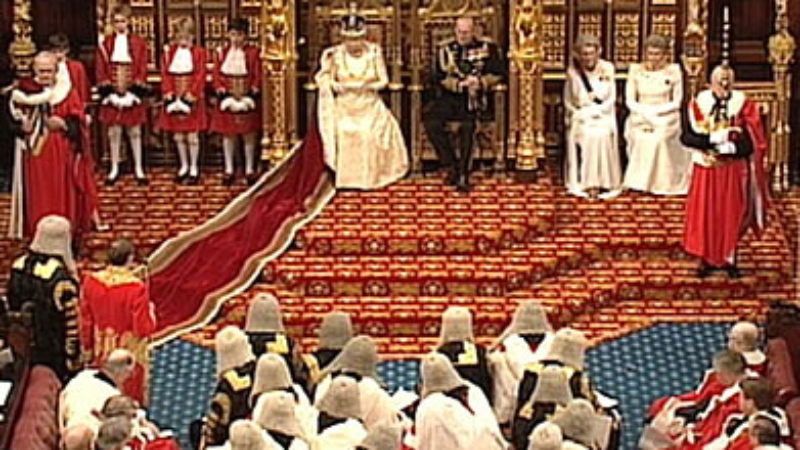
Not one of France’s five republics has truly fulfilled the ideals of the 1789 Revolution. The First and Second Republics led to Napoléon Bonaparte and his nephew ruling as emperors. The Fifth Republic saw a former president, Jacques Chirac, prosecuted for corruption as well as the Clearstream and Bokassa diamonds scandals. However, the most shocking betrayal was provided by the Third Republic. The Sacré-Coeur, one of the most famous landmarks in Paris, was built to ‘expiate the crimes’ of the socialistic Paris Commune. The basilica stands almost on the very spot in Montmartre where the 1871 uprising started. It was not a King who brutally suppressed the Commune, but Adolph Thiers, the first President of the Third Republic.
British monarchists often point to republican countries like France and argue that for all the public expenditure our Royal Family is the least of all the evils. There are many British ‘subjects’ who support this argument, including some French ‘citizens’ looking at their own government with scepticism. However, ‘pragmatic’ monarchists miss the point. What French history tells us is that revolutions can be manipulated by opportunists and, more importantly, the republic itself was used to benefit the emerging French bourgeoisie and not the working class. The industrial classes could tolerate some democracy but they did not believe in the radical formulation of liberté, égalité et fraternité – freedom, equality and brotherhood – which the Commune represented.
Tom King and Mark Ferguson make excellent points. However, the monarchy must also be seen as part of the legacy of an entire social system: feudalism. To create genuine democracy Labour should support gradual and cumulative constitutional reform as part of a general policy of transforming British society. Abolishing the monarchy should simply be a matter of blowing out a candle at the end of the process.
The feudal legacy is not economic but rather cultural and constitutional. Nobility has been transformed into a system which embraces a post-feudal, capitalist ‘meritocracy’ in the form of the Life Peerages Act 1958 which expanded appointments to the House of Lords. Along with other feudal-type honours such as knighthoods, the entire honours system merely rewards ‘achievement’ on an arbitrary basis. It creates a culture of sycophancy and corruption. If we must have an upper house then its members should all be accountable to the electorate: for short periods of office, unlike the Coalition proposals for 15 year terms. The campaigning group Republic says “it [the monarchy] robs us of aspiration, telling us that even the wisest and most talented commoner is no match for even the most unpleasant and immoral royal”. Republic’s aims are liberal and well-intentioned, but the basis of these reforms could simply satisfy the egos of individuals who believe that they are more worthy of validation than anyone else. Socialists must not replace deference to birth-right with deference to an arbitrary concept of merit.
Beyond feudalism, retaining a monarchy for constitutional reasons is an expensive and often unworkable means of controlling the executive. In Italy, the concept of constitutional monarchy became a farce. King Victor Emmanuel III was ostensibly head of state while ‘Prime Minister’ Benito Mussolini and the Fascist Grand Council exercised real power. In Britain, controls on the power of the executive could be achieved by abolishing the Royal Prerogative – in law a personal power of the monarch but de facto exercised by the Prime Minister and cabinet. Allowing Parliament better powers of scrutiny over executive powers such as the right to declare war and deploy troops would enable better legislative scrutiny of controversial decisions. Other measures such as a written constitution, a legally-binding code of conduct for MPs and smaller parliamentary constituencies might make the legislature itself more corruption-proof.
Above all, for all its vestigial power and for all the pomp and ceremony, the monarchy is very weak. The monarchy did not cause the concentration of wealth in fewer hands and the global financial meltdown. Abolishing it will not eradicate economic class divisions. Democratic socialists must not only face down kings and queens but also the successors of Adolphe Thiers and Mussolini. Labour must fight for true democracy and should not stop halfway. We must stand for collective as well as individual aspiration so that all human potential can be fulfilled: “from each according to their ability, to each according to their need”. Abolishing the symbols of inequality is not enough: it must be impossible for inequality to arise in the first place.
Kevin Hind was Labour’s 2010 Labour Parliamentary Candidate for Bury St Edmunds




More from LabourList
Supreme Court trans ruling: Ban on CLPs and branches backing ‘unlawful position’
‘How we can build a strong political centre and centre-left’
‘Building the UK’s best network: delivering digital opportunity for every community’